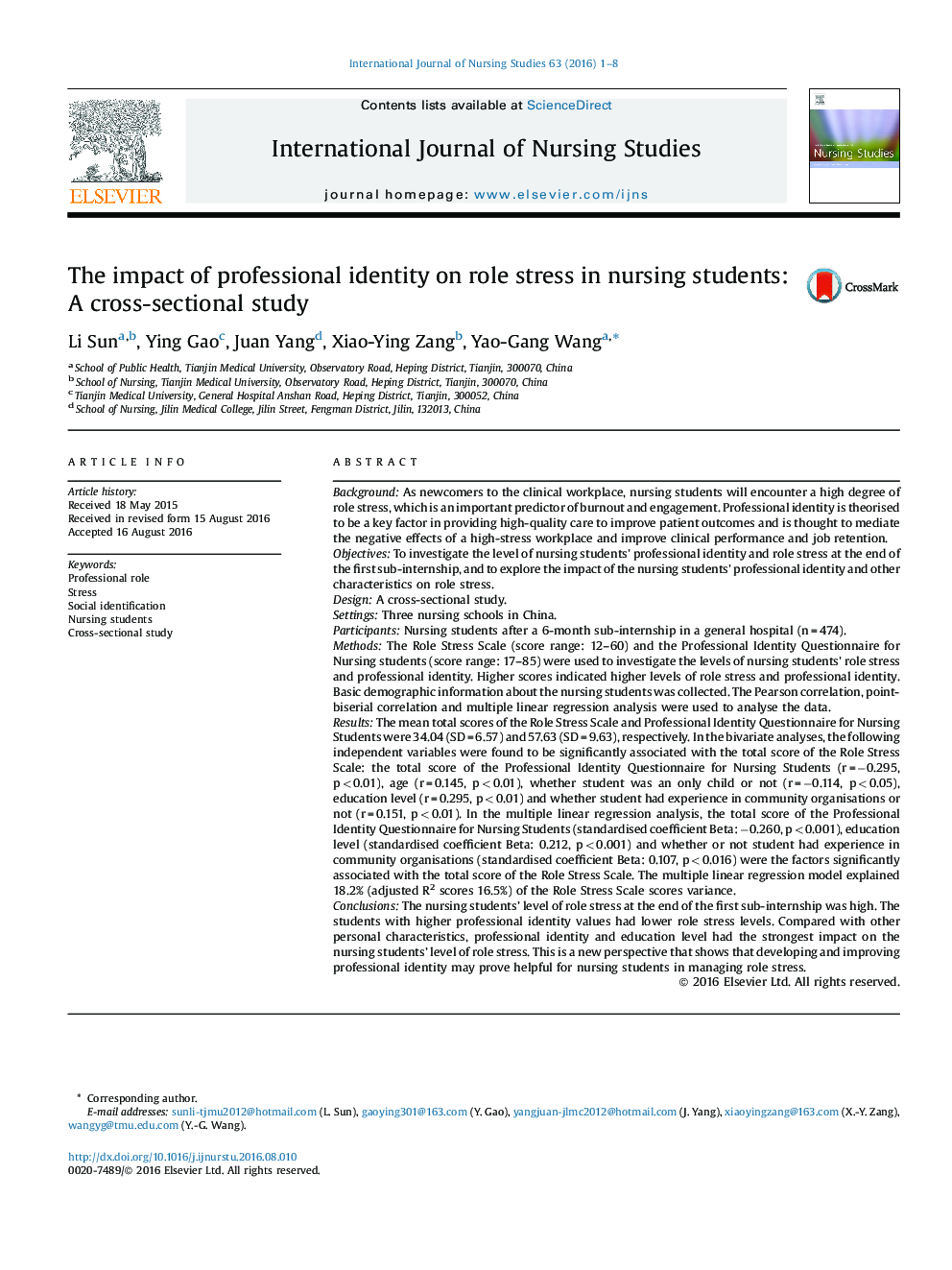| کد مقاله | کد نشریه | سال انتشار | مقاله انگلیسی | نسخه تمام متن |
|---|---|---|---|---|
| 1075948 | 1486506 | 2016 | 8 صفحه PDF | دانلود رایگان |
BackgroundAs newcomers to the clinical workplace, nursing students will encounter a high degree of role stress, which is an important predictor of burnout and engagement. Professional identity is theorised to be a key factor in providing high-quality care to improve patient outcomes and is thought to mediate the negative effects of a high-stress workplace and improve clinical performance and job retention.ObjectivesTo investigate the level of nursing students' professional identity and role stress at the end of the first sub-internship, and to explore the impact of the nursing students' professional identity and other characteristics on role stress.DesignA cross-sectional study.SettingsThree nursing schools in China.ParticipantsNursing students after a 6-month sub-internship in a general hospital (n = 474).MethodsThe Role Stress Scale (score range: 12–60) and the Professional Identity Questionnaire for Nursing students (score range: 17–85) were used to investigate the levels of nursing students' role stress and professional identity. Higher scores indicated higher levels of role stress and professional identity. Basic demographic information about the nursing students was collected. The Pearson correlation, point-biserial correlation and multiple linear regression analysis were used to analyse the data.ResultsThe mean total scores of the Role Stress Scale and Professional Identity Questionnaire for Nursing Students were 34.04 (SD = 6.57) and 57.63 (SD = 9.63), respectively. In the bivariate analyses, the following independent variables were found to be significantly associated with the total score of the Role Stress Scale: the total score of the Professional Identity Questionnaire for Nursing Students (r = −0.295, p < 0.01), age (r = 0.145, p < 0.01), whether student was an only child or not (r = −0.114, p < 0.05), education level (r = 0.295, p < 0.01) and whether student had experience in community organisations or not (r = 0.151, p < 0.01). In the multiple linear regression analysis, the total score of the Professional Identity Questionnaire for Nursing Students (standardised coefficient Beta: −0.260, p < 0.001), education level (standardised coefficient Beta: 0.212, p < 0.001) and whether or not student had experience in community organisations (standardised coefficient Beta: 0.107, p < 0.016) were the factors significantly associated with the total score of the Role Stress Scale. The multiple linear regression model explained 18.2% (adjusted R2 scores 16.5%) of the Role Stress Scale scores variance.ConclusionsThe nursing students’ level of role stress at the end of the first sub-internship was high. The students with higher professional identity values had lower role stress levels. Compared with other personal characteristics, professional identity and education level had the strongest impact on the nursing students’ level of role stress. This is a new perspective that shows that developing and improving professional identity may prove helpful for nursing students in managing role stress.
Journal: International Journal of Nursing Studies - Volume 63, November 2016, Pages 1–8
